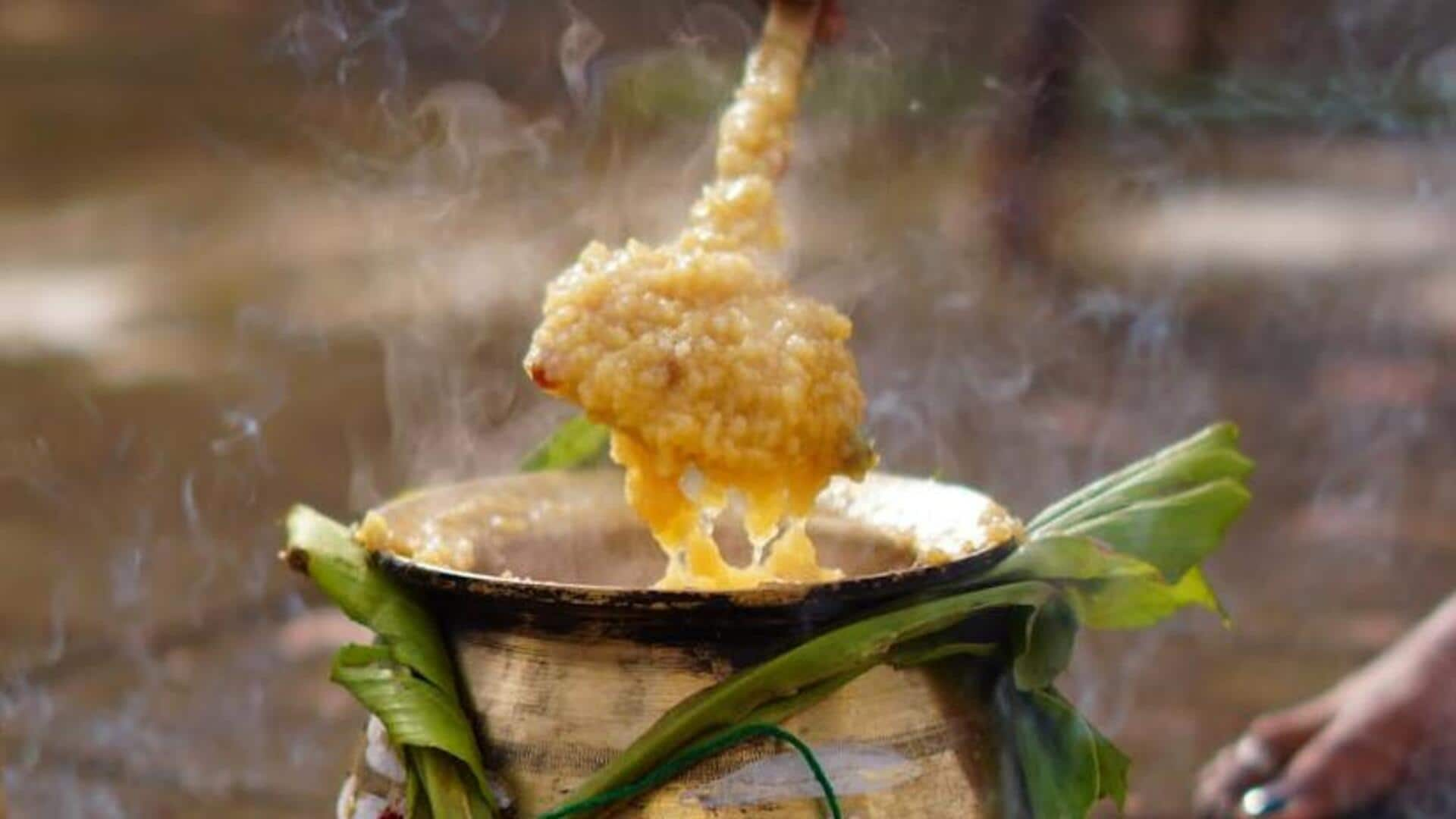
From Pongal to Baisakhi: Celebrate Indian harvest festivals authentic way
What's the story
Indian harvest festivals are colorful celebrations marking the end of a harvesting season and the start of another one.
These festivals are celebrated in different states, each state with its own customs and traditions.
A major highlight of these celebrations is preparing and eating the traditional vegetarian dishes reflecting India's rich agricultural heritage.
Here's how you can celebrate these festivals the traditional vegetarian way.
South Indian tradition
Pongal: A South Indian delight
Pongal is celebrated in Tamil Nadu as a thanksgiving festival for the bountiful harvest.
The highlight is cooking Pongal, a dish made from freshly harvested rice, lentils, jaggery, and milk.
Traditionally cooked outdoors in clay pots, it is offered to the Sun God.
Families come together to prepare this dish together, symbolizing unity and gratitude for nature's bounty.
North Indian celebration
Lohri: Celebrating with bonfires
Lohri marks the end of winter in Punjab and Haryana with bonfires being the focal point of its celebration.
People come together around these fires singing folk songs and performing Bhangra or Gidda.
Traditional delicacies like sesame seeds (til), jaggery (gur), peanuts, and popcorn are shared among family members as they celebrate togetherness.
Kite festival tradition
Makar Sankranti: Kite flying fun
Makar Sankranti is celebrated all over India, with kite flying being one of its most fun activities (especially in Gujarat, where it is also celebrated as the Uttarayan festival, too!).
People love flying kites while relishing on sweets made from sesame seeds such as tilgul ladoos, which symbolize sweetness and warmth during the cold months ahead!
Punjabi New Year
Baisakhi: Welcoming New Year
Another reason why Baisakhi is special is that it marks the Punjabi New Year and the end of the harvest season, when farmers thank God for good crops by performing Bhangra dance, donning colorful attire.
Dishes like Sarson da saag and makki di roti are prepared using fresh produce, reflecting the region's agricultural richness, while families come together, sharing joyous moments over meals filled with love and laughter alike.